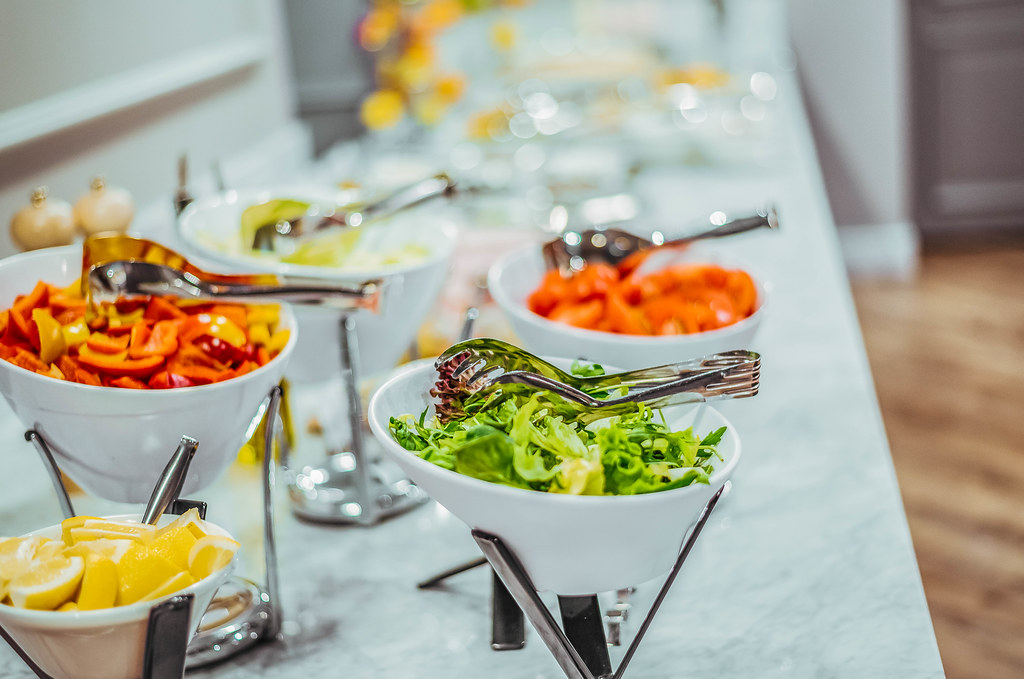Growing up, we were often encouraged to eat all our food until the last crumb, by parents who would constantly mention the thousands of starving children elsewhere. These exhortations have apparently had little effect in reducing the amount of waste generated by the leftover food.
According to the Egyptian Food Bank, a charitable NGO inaugurated by 15 businessmen in 2005, 16 million people live below the poverty line in Egypt, while a considerable quantity of leftover food is wasted on a daily basis, a behavior that is neither economical nor environmentally friendly.
The waste is not only generated by individuals but also by restaurants, where uneaten food is thrown away on a daily basis as the result of catering for tourist groups or lavish weddings. If eating and cooking less can help to reduce the food wastage, solutions for the re-use of leftovers are also necessary.
Ahmed Adel, the chef at Tabasco restaurant, explains the system at his place of work. The staff are required to cook a certain amount of food, depending on the level of consumption, which is recorded by internal statistics. “In this way we keep leftovers to a minimum, using the extra food for the workers’ meals," he says.
“If you cook extra sauce, you can freeze it and reuse it later on, or you can prepare crêpes with crumbled eggs left from the breakfast,” the chef suggests.
Not all restaurants look for ways to reduce food wastage though. As Ahmed Shebl, an employee at Italian restaurant Mercato Italiano, told Al-Masry Al-Youm, even if the staff are required to cook according to statistics, a percentage of fresh leftovers ends up in the garbage bin on a daily basis.
“It is a very small percentage,” Shebl says, “but we never thought of alternatives.”
Avoiding such scenarios is the aim of an initiative launched by the Egyptian Food Bank, in collaboration with the Chamber of Hotel Establishments. The initiative involves packing untouched food leftovers from hotels and restaurants and delivering them to the nearest NGOs, orphanages and retirement homes. Hotels and restaurants can either pack the food in sealed containers provided by the organization or contribute their own. The food should be untouched, with the precise date, time of production and validity written on the containers.
According to Moez al-Shohdi, Chief Executive Officer of the Egyptian Food Bank, “The organization provides food to 150,000 families per month, thanks to the support of 7000 volunteers throughout Egypt and 172 staff members.”
Individuals can do their bit to reduce food wastage as well. At home, cooking smaller portions mean less waste, while unwanted food can be distributed to poorer people in the area. Meanwhile, food that has been cooked already can often be quickly re-cycled into something quite edible.
Sohier Abdel Azeem, an Egyptian housewife with years of experience in food economy, has her own methods for re-using left-overs, mostly involving refreshing old ingredients with some kind of sauce.
“A thick white sauce is the solution for leftovers,” says Sohier of her first recipe, which aims to revive yesterday's cooked rice or pasta by mixing it with freshly cooked meat or chicken, then soaking it in a thick white sauce (béchamel). The dish is then placed in an oven for a few minutes until the surface turns crisp.
Cooked meat or chicken, on the other hand, can be refreshed with a mix of chopped onions, green peppers and spices, then grilled in a pan with some drops of oil. The result resembles shawarma and can be served in a sandwich or as the meat component of a main meal, perhaps alongside some re-heated vegetables.
Talking of which, if the aim is to rescue old vegetables stuck in the bottom of the fridge, they can be incorporated into a mixed vegetable curry. This is a healthy and simple rescue recipe, served with basmati rice and Greek yogurt for a richer tasting curry sauce.
Living in an environmentally friendly style can be easier and definitely cheaper than we think; we only need to change our habits.




